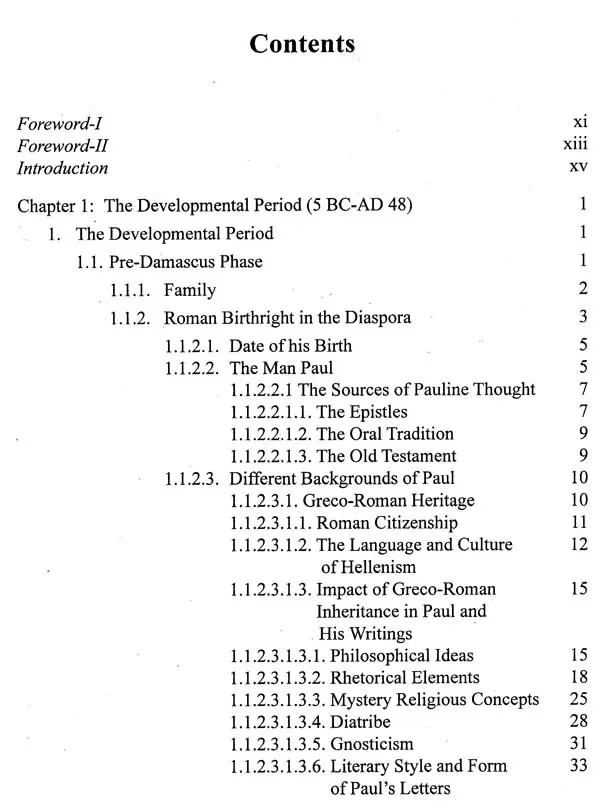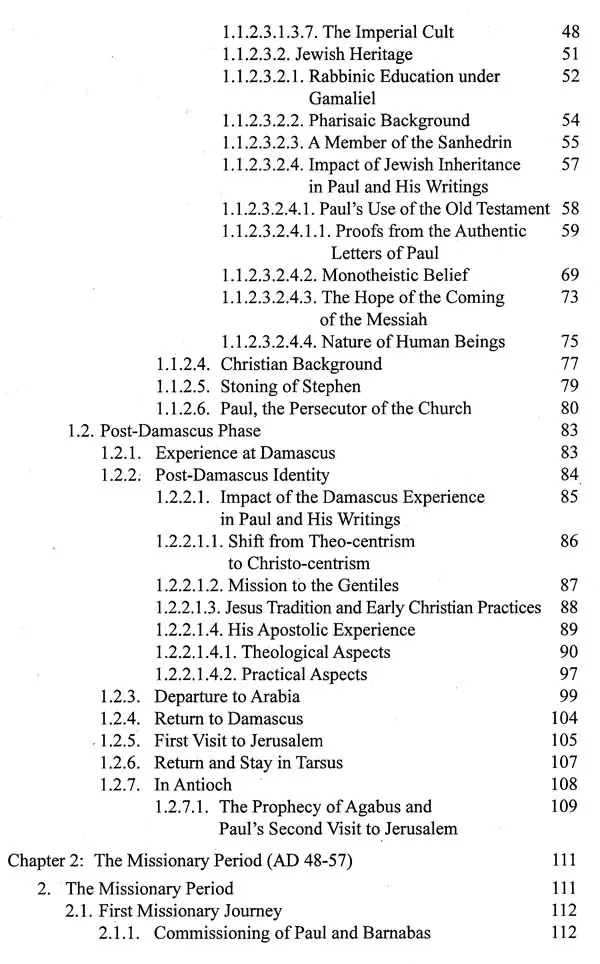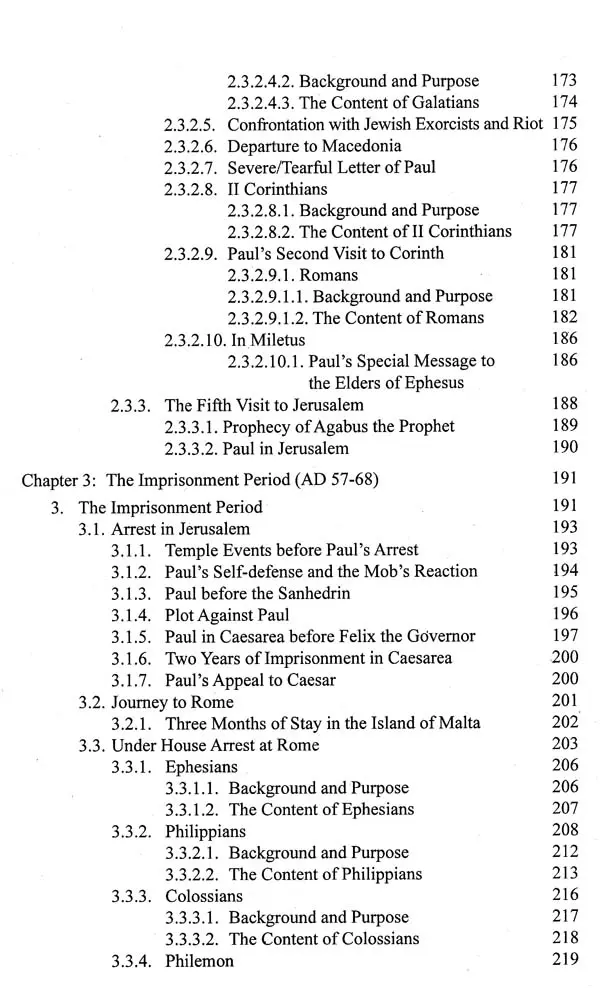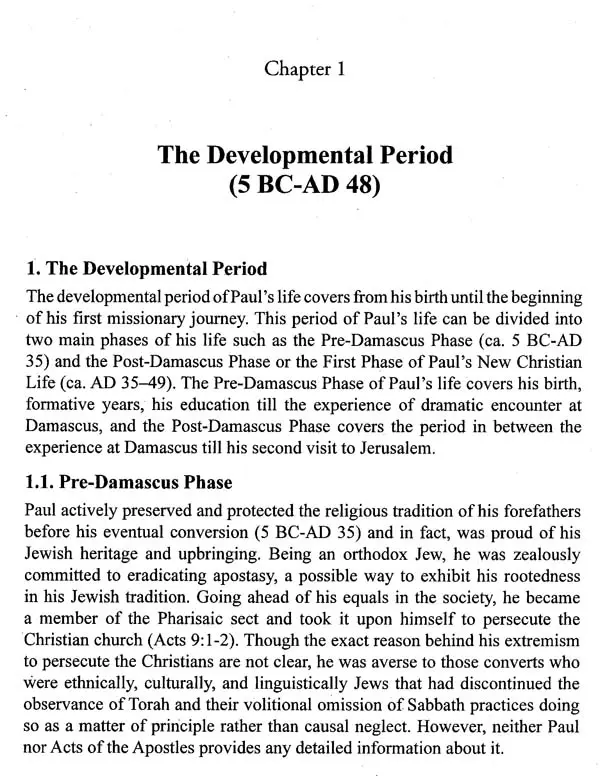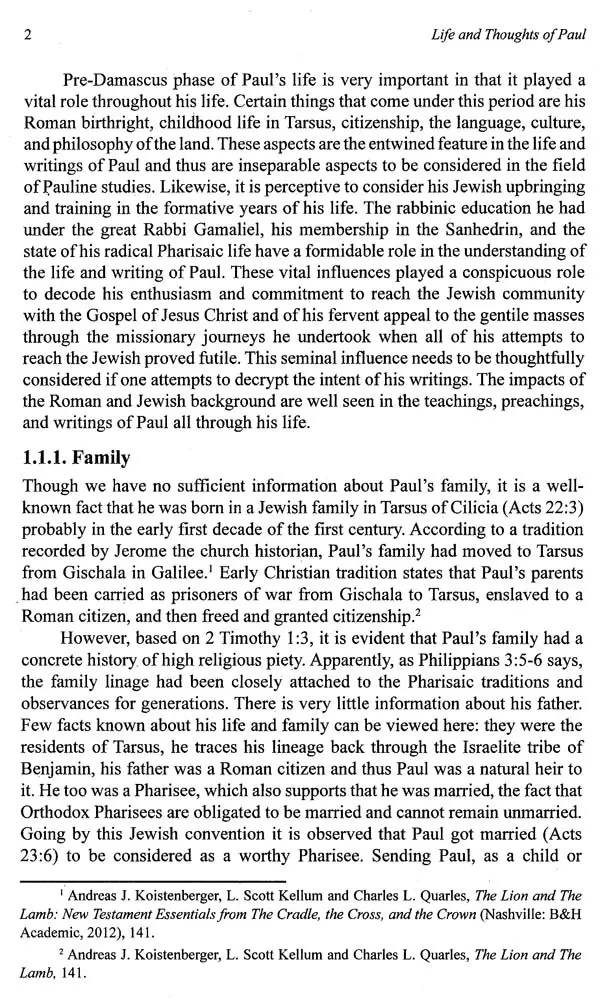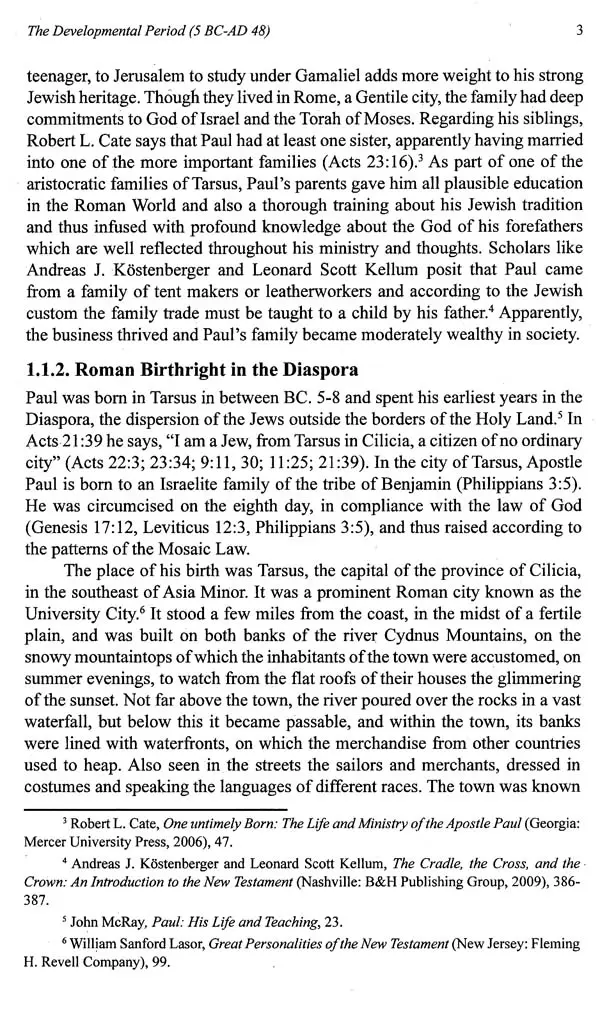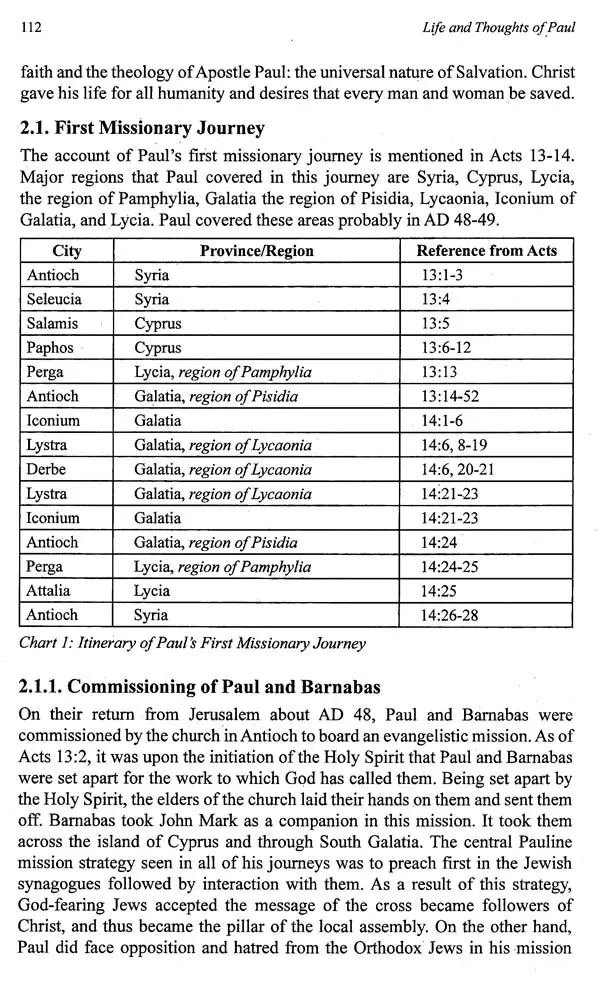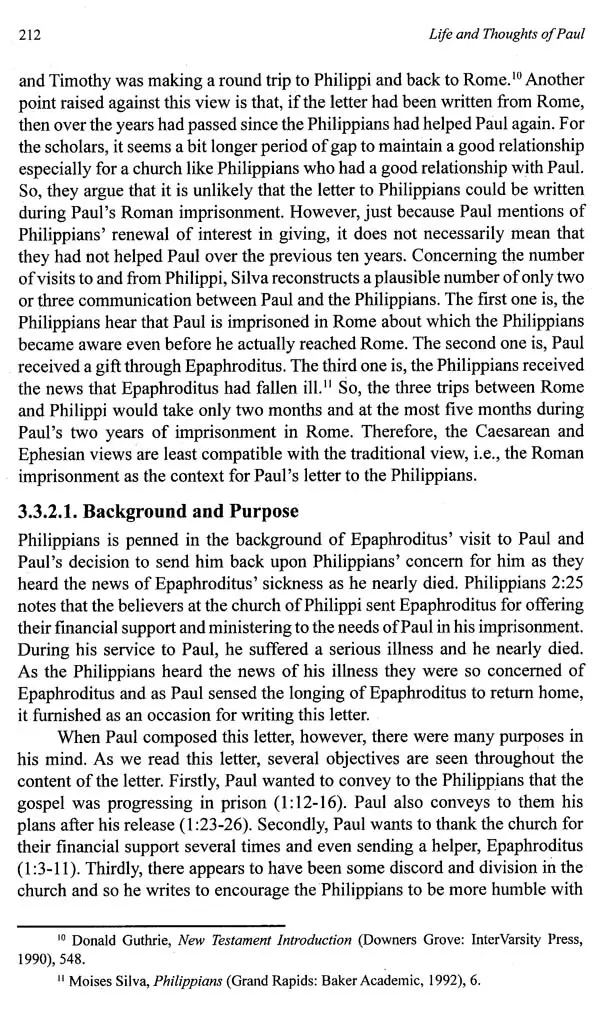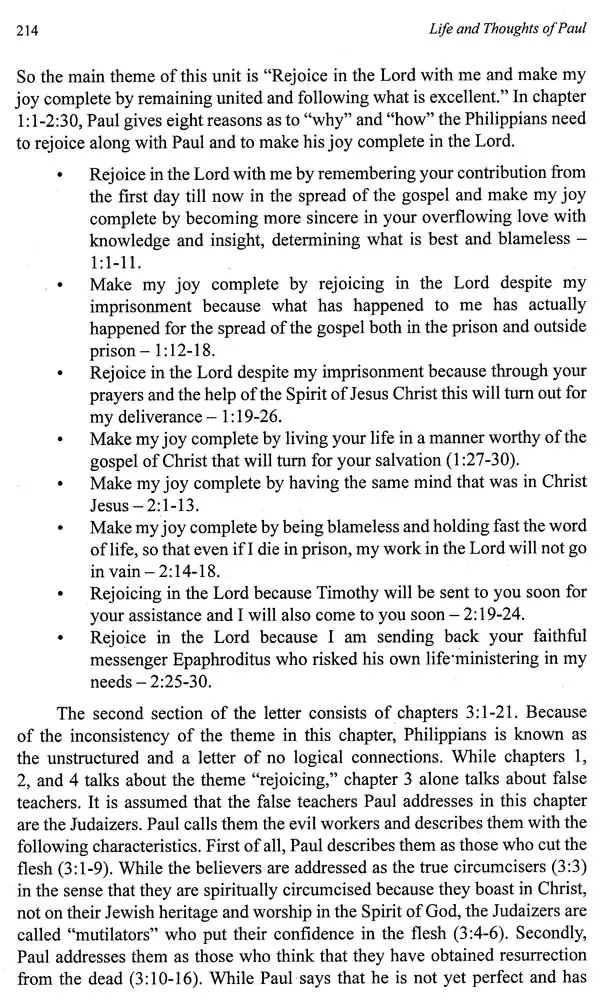
Life and Thoughts of Paul: A Chronological Study of Paul and His Corpus in the Greco-Roman, Jewish, Christian Background
Book Specification
| Item Code: | UBA198 |
| Author: | Jojan Jose |
| Publisher: | Christian World Imprints, Delhi |
| Language: | English |
| Edition: | 2021 |
| ISBN: | 9789351485346 |
| Pages: | 274 |
| Cover: | HARDCOVER |
| Other Details | 9.50 X 6.50 inch |
| Weight | 630 gm |
Book Description
The book is meant to give an in- depth exposition of the Life and Thoughts of Paul. The Author has attempted a careful investigation of the Greco-Roman, Jewish and Christian background and how it molded Paul's life, theology and his worldview. Furthermore, this book deals in detail with the missionary journeys of Paul, his ministry, and his writings in chronological order. The work also reflects the meticulous investigation of the author on historical writings apart from the Biblical sources to provide the actuality of historical Paul to the readers. This book will certainly help its readers to understand Paul's life, his epistles and his thoughts chronologically.
Jojan Jose is a faculty of New Testament in Mission India Theological Seminary, Nagpur and a visiting lecturer of New Testament in MIBC Trivandrum, Kerala. He has received Master of Theology in New Testament from Hindustan Bible Institute & College, Chennai, Tamil Nadu; and Martin Luther Christian University, Shillong, Meghalaya. He is a gifted preacher and teacher of the Word of God. He is the author of The Concept of God in James-Importance and Implications: A Contribution to the New Testament Theology (Notion Press, 2017) and An Interpretation of 1 Corinthians: A Moral and Theological Clarification of Paul to the Ecclesiastical Discrepancies (Christian World Imprints, 2019). He is married to Jaimol. They have been working as Missionaries in North India and are members of the resident faculty at Mission India Theological Seminary, Nagpur, Maharashtra. They have a son, Joash J. Jojan and a daughter Janice Jemi Jojan.
Apostle Paul was, in his times, a bold voice and an impressive missionary who played a crucial role in spreading the gospel to the non-Jews during the first century CE. He travelled the then known world taking the gospel from Asia Minor to Macedonia, Greece, Rome, and beyond. His calling was an unlikely one, given his persecution records; nevertheless, God's grace saw him rise as a bold leader and torch bearer of Christian leadership. His life, ministry and writings are widely studied, accepted and sometimes misinterpreted. An understanding of the chronological framework in which Paul's life and letters are situated can shed more light on the mission and message of Paul. But reconstructing a chronology of Apostle Paul and his letters is always a great challenge.
The book A Chronological Study of Paul and His Corpus in the Greco- Roman, Jewish, Christian Background by Jojan Jose is a sincere attempt to reconstruct a chronology of the Apostle Paul. As a chronological guide for Pauline scholarship the book offers illuminating insights into his life, ministry and theology. The author admirably succeeds in providing a deeper view of the Greco-Roman-Jewish world of Paul's time, his missionary journeys, the several letters he wrote and the many challenges he faced in ministry.
I must appreciate Jojan Jose for his sincere attempt at putting together Paul's life in a chronological order, with hours of research being done to provide solid and accurate content to his readers. It is my hope and expectation that this book will be a wonderful resource for both the beginning and advanced students of Pauline theology.
In the history of the New Testament, Apostle Paul is known as the most important personality in spreading the movement that later came to be known as Christianity in the wider ancient Roman world. He is also known for the literary work since thirteen books in the Holy Scripture are attributed to him that are part of the canonical New Testament. The Acts of the Apostles, the only available narration of the history of the Jesus' Movement in the New Testament also covers profoundly the life and missionary journeys of Paul. Palpably, the Holy Spirit through Luke epitomizes the life of Paul and his teaching as an example and an authentic source for learning about true discipleship and Christian ministry. Concerning the writings of Paul what one observes is the striking commonality it shares with other Jewish writings of Diaspora during the first half of the first century. Though his thoughts and writings remain faithful to the Jewish and Christian heritage in many details, it does also show substantial influence from the Greco-Roman culture that permeated the Eastern Mediterranean world of his day. Paul in his writings includes some of the details of his own Jewish, Pharisaic, and Christian background. Therefore, to understand the history of Christianity in its early stage, its development, and Paul's theology in a better way, it is important to know the background and life events of Paul chronologically with the socio-political and religious currents of his days. Also one should consider the Roman Rulers and their methods of governance on the happenings in the Greco-Roman World and also the important historical events from the time of Jesus' birth till Paul's death.
As aforesaid, learning the chronological order of the events in the life of Paul and his ministry is a valuable tool for the study of Paul the Apostle and his writings. Though one gets the length of time between one event and another event to regulate Paul's life and ministry from the book of Acts and some of his writings, it is not sufficient enough to determine the year in which certain events took place. Thus, one has to make some educated guesses about the chronology of Paul by studying the key events in the secular history and also by perceptively analyzing the beginning and end of the reign of political rulers of those days and connecting those events with the information mentioned in Acts and of Paul's writings. This is to highlight the high level of consistency and authenticity of the biblical text as it is ratified with the secular events and datings and thus validating the veracity of the biblical accounting of happenings. When events in the Bible listing with known dates are confirmed outside the Bible, it gives a high level of consistency and authenticity to the biblical text. Since the Bible is a historical document, any part of its study or assessment of the value of any historical narrative, doctrine, and theology is made possible with the study of the chronological recording of events.

